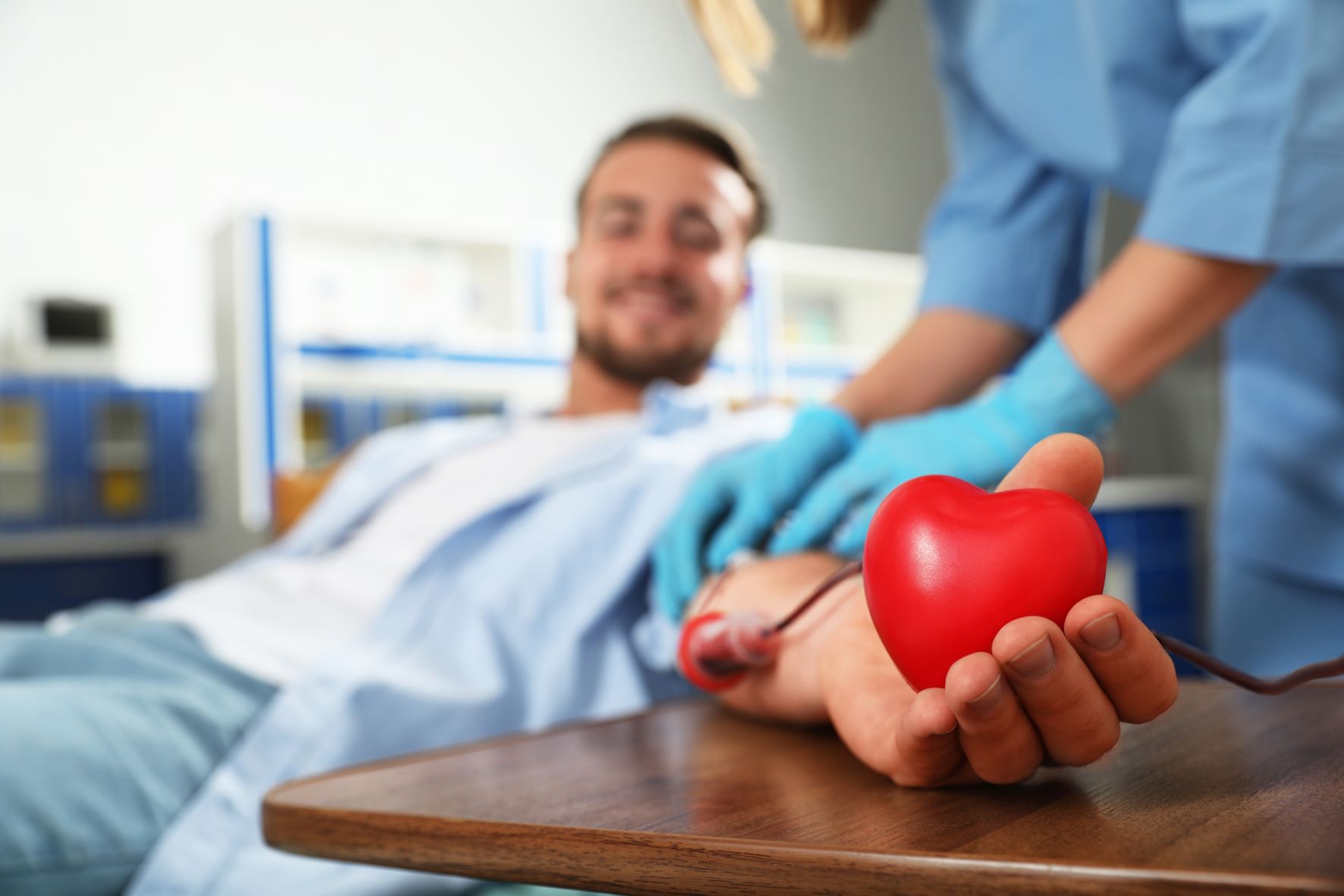
Blood donation: A call to action
We have entered a dangerous time. Our national health care system is being pushed to its limits. We urgently need blood donations on a local and national level. Blood cannot be manufactured or replicated. Donations are the only way for us to maintain our supply.
Stephanie Heubi, manager for Laboratory Services for OSF HealthCare, is asking everyone to do their part and donate blood.
“Our need for blood never ends. Pandemics, busy schedules or fear of the donation process, nothing stops the need for continued blood donations,” Stephanie said. “And while during different times of the year we traditionally see drops in donations, the pandemic has magnified those declines. That’s problematic because the number of emergent and medical conditions that require a blood transfusion remains consistent.”
How much do we need?
Did you know that one person in a severe traffic accident could need up to 100 units of blood? Or, as a nation, we use around 36,000 units of blood a day?
“We use and need blood readily available to all local area hospitals. Currently, about 7 million volunteers donate about 13.5 million units of blood a year across the nation. But if we are going to stay ahead of the curve in our area, it is vital for all eligible community members to donate,” Stephanie said.
Each donation is safe and can help several people
Each unit of blood is tested and broken down into components. The components are plasma, platelets and red blood cells. Because blood can be separated into components, one unit of blood and its parts may be transfused to several people, depending on what part of the blood they need.

“To ensure the blood donations are safe, the donated blood is tested for blood type and numerous infectious diseases. The blood is also leukocyte-reduced, which reduces the possibility of the recipient from reacting,” Stephanie said.
There are four main types of blood – A, B, AB and O. ImpactLife, the main blood supplier for OSF HealthCare, specifically has an ongoing need for any type O donors, those who are Rh-negative and platelets.
“Anyone can receive type O blood during an emergency regardless of what blood type they are. So when a person has been in an accident, we can give them type O until we figure out their blood type. If you are type O, we need you.” Stephanie said. “Platelets are what causes our blood to clot, helping to slow, and eventually stop, bleeding. Platelets are vital in the care of our oncology patients, in cardiac and surgery cases, and emergent situations.”
Who can donate?
Volunteer blood donors must meet specific criteria. These include:
- Have a photo ID
- Have not given blood within the last 56 days
- Must be at least 17 years of age, or age 16 with parental consent
- Must be in good health
- Must weigh at least 110 pounds
- Must pass the physical and health history exam given before donation
- Not been pregnant within the last six weeks
- Not received blood products within the last three months
Who can’t donate?
People who meet the above criteria can generally donate. Different conditions, diseases or situations may require you to wait for a specified period. You might be turned away at the time of donation if you have:
- Received cancer treatments within the last year
- Creutzfeldt-Jakob disease
- Symptoms of illness – you don’t feel well, suffering from cold, flu, etc.
- Been exposed to HIV/AIDS in the last three months
- Low iron – A low iron count will exclude you until you can take steps to raise your iron levels
- Taken certain medications – While most medicines don’t exclude you from donating, you might have to observe a waiting period before donating
- Traveled – traveling to some regions of the world may require you to wait or go through some additional testing or wait period before donating
How you can help
“Roughly 3% of the population donates blood regularly – that simply isn’t enough,” Stephanie said. “We need all types of blood donors, but especially type O. Donating is painless, takes less than one hour, and could even save someone you know.”
Donate today.
One donation equals:
- 45 minutes from sign-in through refreshments
- Five to 10 minutes of actual donation time
- Three or four blood components from each whole blood donation
- One good deed to feel great about
OSF HealthCare works with four blood suppliers. To schedule an appointment or find a blood drive, select the area near you:
- Rockford, Illinois – Rock River Valley Blood Center
- Chicago, Illinois — Versiti
- Escanaba, Michigan – The Community Blood Center
- All other OSF HealthCare service areas – ImpactLife